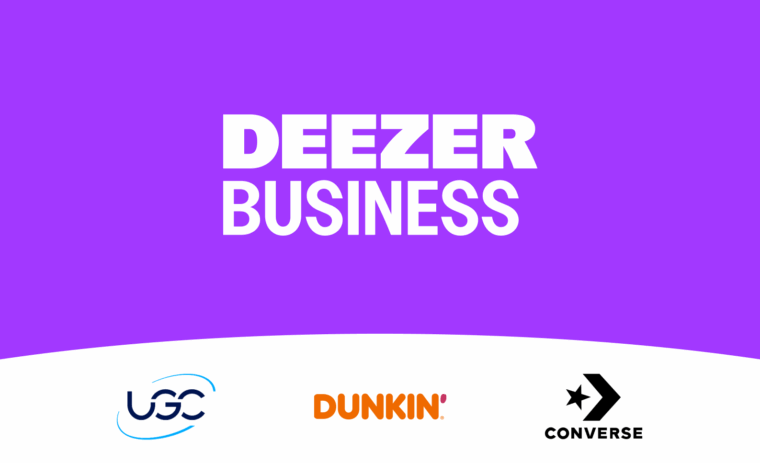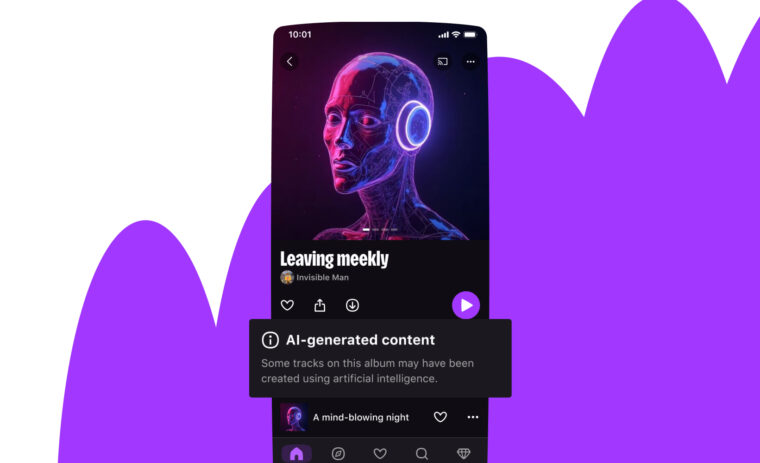co-authored by Denis GERMAIN & Antoine Leroyer
Last November, Deezer returned as a sponsor for the 8th edition of BDX I/O, a major developer conference in Bordeaux.
With over 900 participants, seven themes, and 50 talks (50% of which were given by locals), this year’s focus was on responsible digital practices.
Nearly a dozen of us attended, with one even participating as a speaker!
Deezer, as an imperial sponsor
A unique aspect of this year’s conference was that our booth was set up just days after Deezer’s rebranding. Providing us with a prime opportunity to gather immediate feedback (both positive and constructive) from users.
Many participants also discussed our presentation on the technical architecture of Music Quiz.
Given the size of the crowd that visited our booth and the warm exchanges we had, we had a truly enjoyable day.
Our selection of talks
If you unfortunately missed this event or couldn’t clone yourself to attend all the talks, here’s a brief summary of the four talks that stood out to us this year.
D’observateur à responsable : enrayer l’impact des biais racistes dans l’UX — Marcy Ericka Charollois
Racism fuels users’ experiences — Watch the video
At Deezer, we consider diversity and inclusion to be an integral part of our DNA. Therefore, this talk captured our attention, even though we don’t necessarily work in UX.
In her talk, Marcy Ericka Charollois taught us to take a step back from the usual process of creating a user experience. She guided us to ask ourselves questions to avoid bias when building our product, ensuring it doesn’t unintentionally become white-driven when the intention is to make the product inclusive.
This presentation serves as a valuable starting point if you are not well-versed on the topic of racism, either in a general context or within the technology industry. In particular, it is beneficial for gaining insights into biases and learning how to deconstruct the racism embedded in your work or product on an individual scale. As a straightforward example, in the industry, we often use terms like “whitelisting” and “blacklisting” for “allowing” and “blocking” respectively. Why continue using terms like “black” and “white” when we can simply adopt more inclusive alternatives like “allowlist” and “denylist”? The icing on the cake is that it also makes the concepts easier to understand.
We cannot cover all the details of the talk and provide a comprehensive summary here, though, so we highly encourage you to dedicate 45 minutes of your time to watch it!
Serverless: Éviter le vendor locking en construisant sa propre plateforme FaaS avec OpenFaaS et Kubernetes — Katia Himeur
Serverless: Avoiding vendor locking by building your own FaaS platform with OpenFaaS and Kubernetes — Watch the video
Do you want to implement a FaaS solution for your developers, especially one hosted within your infrastructure? Do you have Kubernetes clusters? Then, this talk is tailor-made for you!
In this session, Katia Himeur showcases the advantages of OpenFaaS, a compelling alternative to Knative. With this solution, you can address your scalability, high availability (HA), and developer autonomy needs.
But why create your own platform? So you can avoid Vendor Locking issues and make your platform compatible across multiple clouds! Still not convinced? Thanks to its graphical interface, creating your first functions is both easy and quick, making the solution incredibly user-friendly!
C’est pas Versailles ici ! Éteignez vos envs projets K8S la nuit pour sauver la planète — Xavier Hanin
This isn’t Versailles! Turn off your K8S project environments at night to save the planet — Watch the video
In this insightful 20-minute talk, Xavier Hanin teaches us how to shut down project environments (non-bare-metal clusters) at night and on weekends to avoid unnecessary resource consumption.
Using the kube-downscaler, an open-source project, he turns off a significant portion of his equipment outside of working hours, and kube-downscaler switches them back on in the morning, just before the first employees arrive!
Concerned that some of your applications should not be turned off? No worries. By using taint on your nodes, you can manage which applications can be shut down and which ones must remain available at all times.
As a result, Xavier has reduced his energy consumption, cost, and, most importantly, CO2 emissions by 46%!
En finir avec les Makefile en Go avec GoReleaser — Denis Germain
Putting an end to Makefiles in Go projects with GoReleaser — Watch the video
This year, one of our colleagues also had the opportunity to host a session! Senior Lead SRE Denis Germain gave a presentation on GoReleaser, a tool built in Golang that aims to automate and ease all tedious tasks when releasing Golang software. Most of the talk was actually live coded.
Denis started simple, with just a few lines of YAML. He automated the cross-building of a small Golang app. Then he added more functionalities to the process, like building archives, building and pushing Docker images to a registry, and sending a toot on Mastodon. He did all of this within 15 minutes.
Overall, the demo went well, and Denis even had the time to tell a joke during a build… but you’ll need to watch it on replay to see how funny it was 😅.
Wrapping up
Once again, the BDX I/O conference was particularly successful, both in terms of organization and the quality of the talks presented.
The commitment to ecological considerations and the diversity of themes made this year’s edition a highly anticipated moment for all our participants.
We loved having you at our booth for open discussions, whether it was about our technical presentation or our new logo.
After such a rich day, we ended up at the Delirium Café to mingle with organizers and attendees one last time.
We hope to be back next year, with even more speakers from Deezer!




